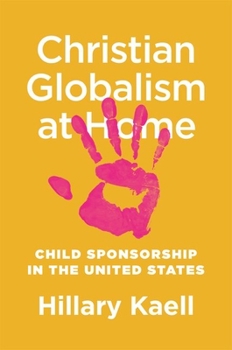Christian Globalism at Home: Child Sponsorship in the United States
Select Format
Select Condition 
Book Overview
An exploration of how ordinary U.S. Christians create global connections through the multibillion-dollar child sponsorship industry
Child sponsorship emerged from nineteenth-century Protestant missions to become one of today's most profitable private fund-raising tools in organizations including World Vision, Compassion International, and ChildFund. Investigating two centuries of sponsorship and its related practices in American living rooms, churches, and shopping malls, Christian Globalism at Home reveals the myriad ways that Christians who don't travel outside of the United States cultivate global sensibilities. Kaell traces the movement of money, letters, and images, along with a wide array of sponsorship's lesser-known embodied and aesthetic techniques, such as playacting, hymn singing, eating, and fasting. She shows how, through this process, U.S. Christians attempt to hone globalism of a particular sort by oscillating between the sensory experiences of a God's eye view and the intimacy of human relatedness. These global aspirations are buoyed by grand hopes and subject to intractable limitations, since they so often rely on the inequities they claim to redress. Based on extensive interviews, archival research, and fieldwork, Christian Globalism at Home explores how U.S. Christians imagine and experience the world without ever leaving home.Format:Paperback
Language:English
ISBN:0691201463
ISBN13:9780691201467
Release Date:June 2020
Publisher:Princeton University Press
Length:316 Pages
Weight:0.35 lbs.
Dimensions:0.8" x 6.1" x 9.1"
Customer Reviews
0 rating





